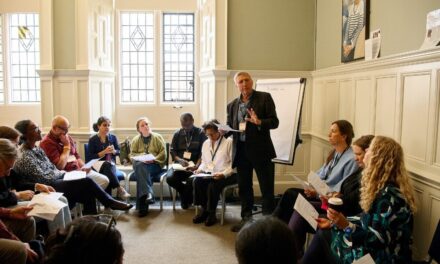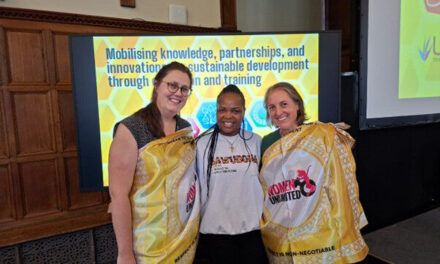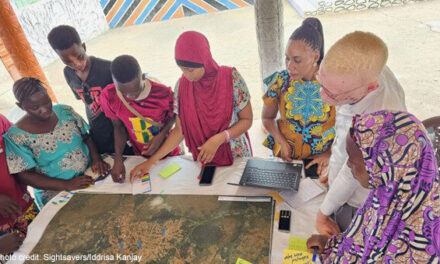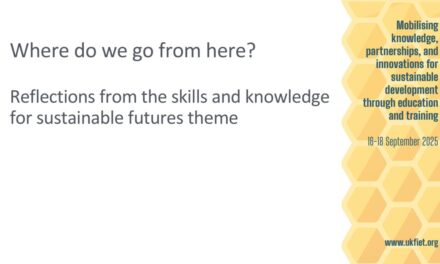This blog was written after the UKFIET September 2025 conference by the theme convenors of ‘Skills and knowledge for sustainable futures’, one of seven conference themes:: Amy Parker, Right to Play, and Karem Roitman, The Open University.
In the Skills and knowledge for sustainable futures sub-theme of the UKFIET 2025 conference, we set a high challenge for presenters. We asked them to share how they are changing education to address the uncertainty and violence that disrupts ‘business as usual’. Funding cuts, rapid technological changes, the climate emergency, and expanding violence, force us to question what is a good education in the midst of a world that is becoming increasingly unpredictable. And it is fair to say that the sessions presented created space to explore, debate and reflect on multiple facets of this epic question!
Several presentations touched on what education is needed for the future. The importance of foundational literacy and numeracy remains a priority, and there are continued efforts to understand how we can support children’s reading skills. A range of sessions reminded us that education cannot flourish without considering social-emotional skills and wellbeing. The sub-theme also highlighted the need to move away from Western-centric views of education. In fact, presentations reminded us of the need to rethink where and how education happens more broadly, challenging us to reflect on what is privileged and why when it comes to what learning is valued and legitimated. The power (and challenges) of play and project-based learning were highlighted and we also discussed the impact of extra-curricular activities. The centrality of teachers remains hugely relevant – how to best support them in increasingly demanding conditions, as well as considering teacher agency and their own wellbeing.
An important component to what types teaching and learning are legitimate is whose voices are considered in choosing knowledge and skills. A particularly powerful research paper explored Indian handloom weaving, presenting the triad of culture, identity and skills, and challenging and going beyond the neoliberal idea of agency. Another paper looked at how children learn by putting them at the centre of knowledge and skills development, and noting how learning is happening outside the expected formal boundaries – reminding us to question where learning happens.
The increasingly important role of technology, and AI in particular, was discussed in multiple sessions. An engaging session on exploring AI tools that are already available took us through how they might support learners, teachers and quality assurance stakeholders in resource-poor contexts. Refreshingly, the session took a constructive angle to the pros and cons of such tools, rather than bemoaning the hypothesis that AI is going to take over the world, and education in particular, or promoting it as the silver bullet to all existing and future challenges.
As the education sector faces growing needs and shrinking funding, the questions highlighted in our sub-theme become more pressing, as which programmes survive a time of leanness will affect whose voices are valued, where and how education is funded, and ultimately, what skills and knowledge are promoted. The need to teach empathy shines out – education cannot be sustainable unless it undermines the idea of ‘the other’.




